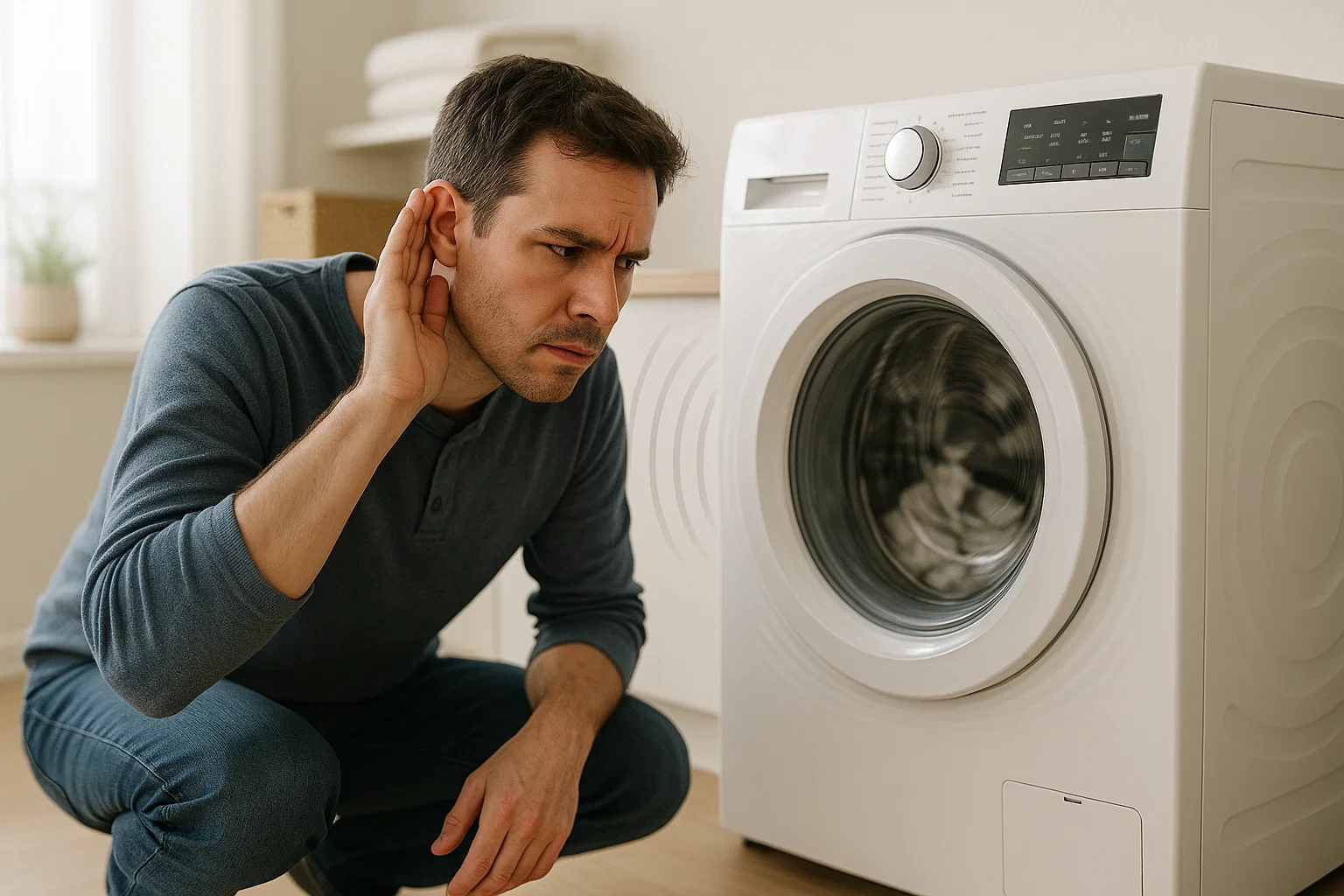
Is your washing machine making noise that’s louder than usual? Strange sounds from your laundry appliance can be concerning and disruptive to your daily routine. Ignoring these noises can lead to costly repairs or complete appliance failure. The good news is that many washing machine noise issues can be diagnosed and resolved with the right knowledge and approach.

When your washing machine making noise becomes a persistent problem, identifying the specific type of sound is crucial for accurate diagnosis. Different noises indicate various mechanical issues within your appliance.
Modern washing machines are designed to operate quietly, but some sounds are completely normal:
However, certain sounds indicate potential problems that require immediate attention.
Understanding the root causes behind washing machine noise helps you determine whether it’s a simple fix or requires professional intervention. Here are the most frequent culprits:
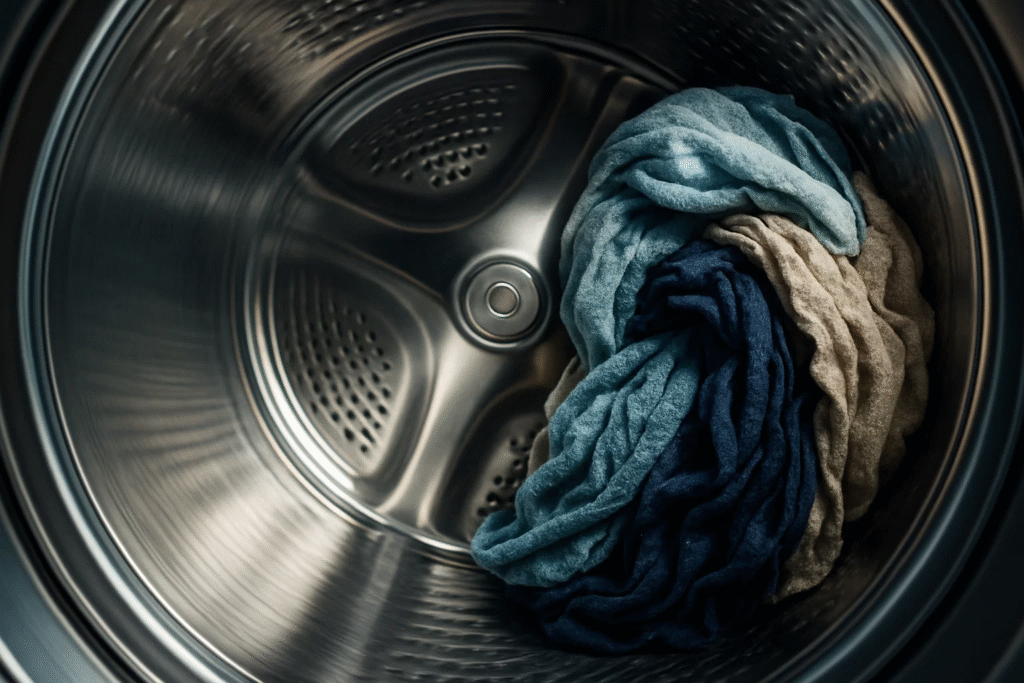
Unbalanced loads are the leading cause of washing machine noise during operation. When clothes clump together on one side of the drum, it creates excessive vibration and banging sounds.
Quick Solutions:
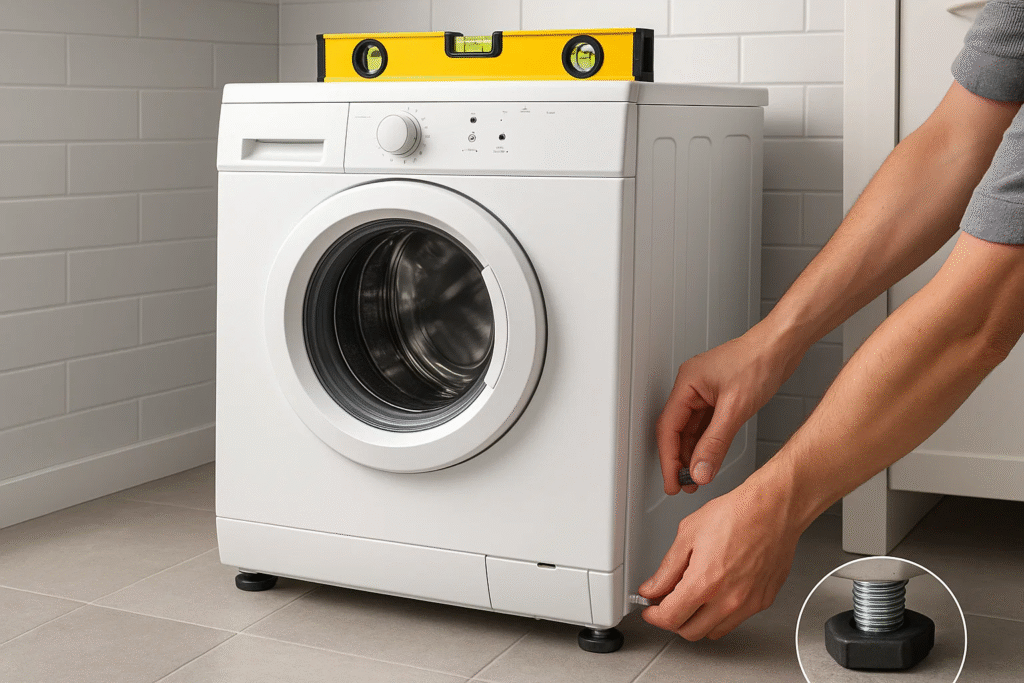
An improperly leveled washing machine will rock and create noise during operation. This issue is particularly common after moving or installing a new machine.
How to Check and Fix:
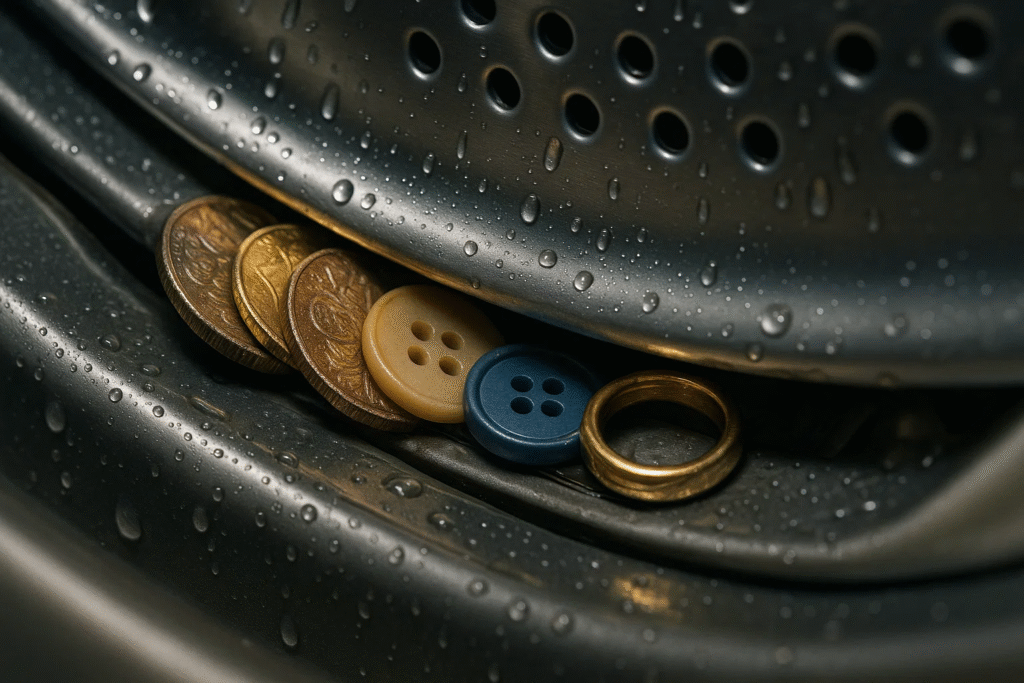
Small items like coins, buttons, or jewelry can become trapped in various parts of the washing machine, causing rattling or grinding noises.
Common Hiding Spots:
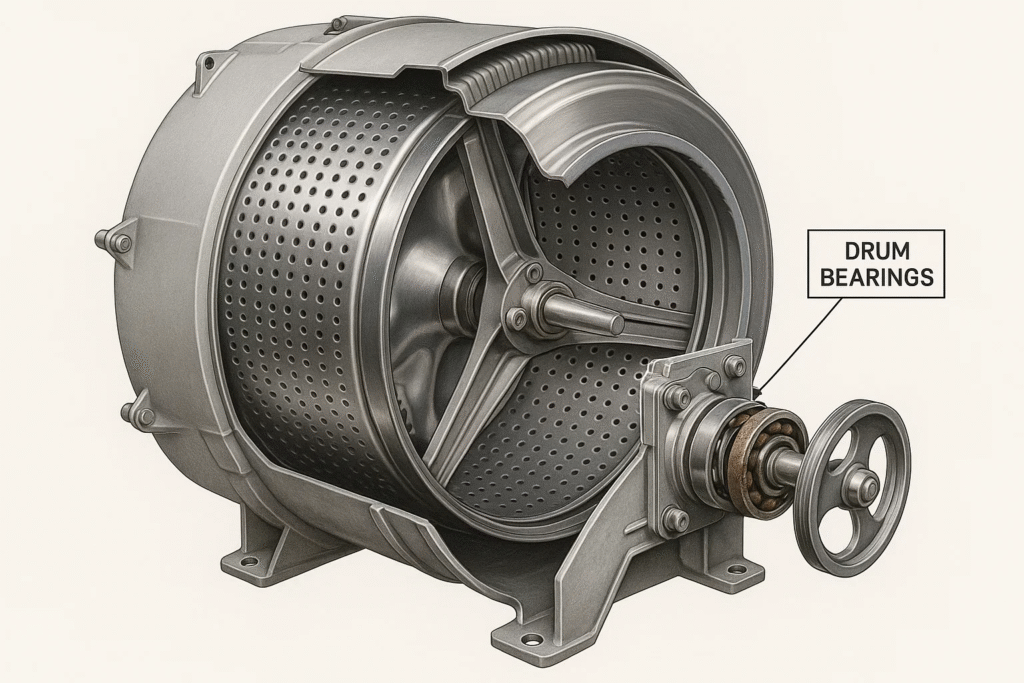
Loud banging during the spin cycle is one of the most common washing machine noise complaints. This sound typically indicates mechanical stress on the appliance’s internal components.
Worn Drum Bearings Drum bearings allow the inner drum to rotate smoothly. When these bearings deteriorate, they create loud thumping noises, especially during high-speed spinning.
Identification Test: Manually spin the drum when the machine is off. If you hear grinding or feel excessive resistance, the bearings likely need replacement.
Damaged Suspension System The suspension system includes springs, shock absorbers, and dampeners that minimize vibration. Worn suspension components allow excessive drum movement, resulting in banging sounds.
Signs of Suspension Issues:

Grinding noises often indicate metal-on-metal contact within the washing machine’s mechanical systems. These sounds require immediate attention to prevent further damage.
Worn Motor Coupling The motor coupling connects the motor to the transmission. When this component fails, it creates grinding sounds during operation.
Transmission Problems A failing transmission can produce grinding or scraping noises, particularly during the agitation or spin cycles.
Drive Belt Issues In belt-driven machines, a worn or improperly aligned drive belt can cause squealing or grinding sounds.

High-pitched squeaking typically indicates friction between moving parts or worn belt components.
Worn Drive Belt Over time, the drive belt can stretch, crack, or become misaligned, causing squeaking sounds during operation.
Pulley Problems Worn or damaged pulleys can create squeaking noises as the belt moves across them.
Lubrication Issues Insufficient lubrication on moving parts can result in squeaking sounds that worsen over time.

Excessive rattling often stems from loose components or improper installation.
Check Machine Stability Ensure your washing machine sits level and stable on the floor. Adjust the feet as necessary to eliminate rocking.
Inspect Internal Components Look for loose screws, bolts, or other fasteners that may have worked loose during operation.
Evaluate Installation Surface The surface beneath your washing machine should be solid and level. Weak or uneven floors can contribute to excessive vibration and noise.
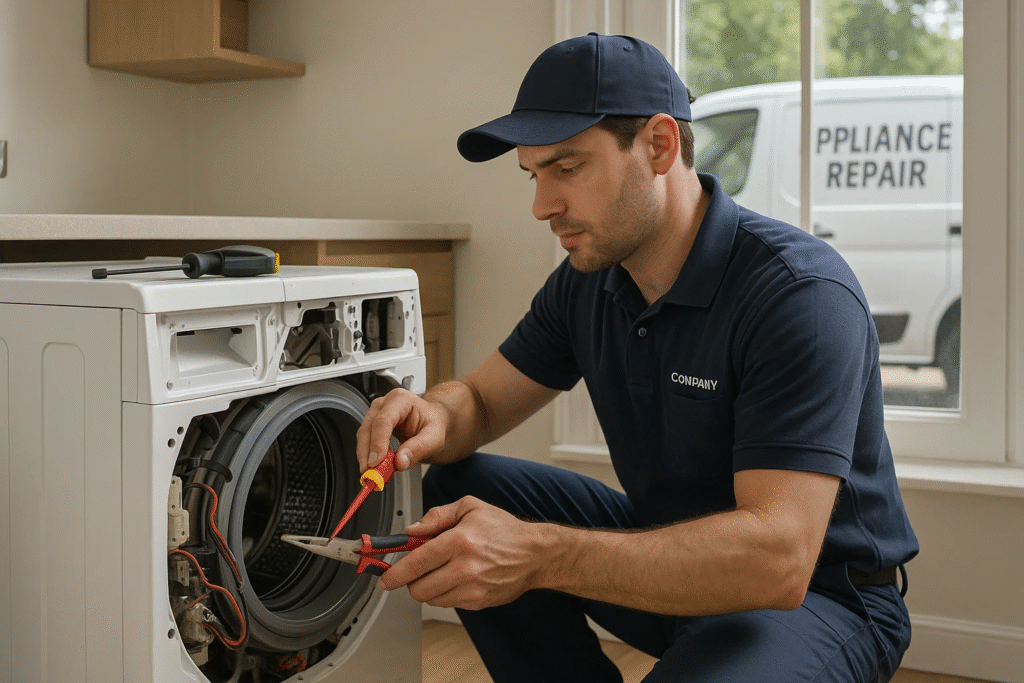
While many washing machine noise issues can be resolved through basic troubleshooting, certain problems require professional expertise:
Before investing in major repairs, consider:
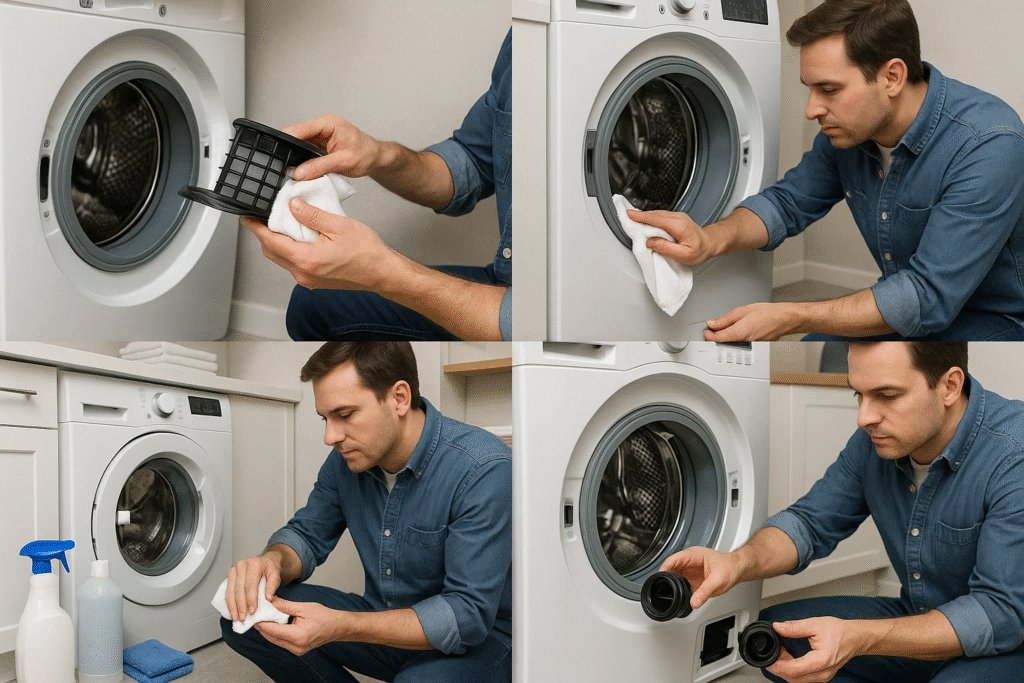
Regular maintenance significantly reduces the likelihood of washing machine noise problems:
Monthly Cleaning
Load Management
Installation Maintenance
Loud spinning noises typically result from unbalanced loads, worn bearings, or suspension system issues. Start by redistributing the load and checking machine level.
Grinding sounds often indicate worn bearings, damaged motor coupling, or transmission problems. These issues usually require professional diagnosis and repair.
Noise reduction starts with proper loading, machine leveling, and regular maintenance. Address specific noise types with appropriate troubleshooting steps.
Some noise is normal, including gentle humming, water sounds, and mild vibration. However, loud banging, grinding, or squealing sounds indicate potential problems.
Filling noise may result from high water pressure, partially closed valves, or sediment buildup in supply lines. Adjust water pressure and check supply connections.
Wash cycle noise can stem from unbalanced loads, loose items in the drum, or worn internal components affecting the agitation system.
Repair costs vary significantly based on the specific issue. Simple fixes like releveling cost nothing, while bearing replacement can range from $150-400.
Continued use depends on the noise type and severity. While minor rattling may be manageable, grinding or loud banging sounds require immediate attention.
Front-loader noise commonly results from worn door seals, trapped objects, or bearing issues. Check the door seal and drum for foreign objects first.
Sudden noise requires immediate investigation. Stop the cycle, check for obvious issues like unbalanced loads or loose items, and assess whether professional help is needed.
Understanding why your washing machine making noise is crucial for maintaining your appliance’s longevity and performance. From simple load balancing to complex bearing replacements, identifying the specific sound type helps determine the appropriate solution.
Regular maintenance, proper loading techniques, and prompt attention to unusual sounds can prevent many common noise issues. When in doubt, consult with appliance professionals to avoid costly damage and ensure safe operation.
For comprehensive appliance maintenance services and expert repairs, visit Appliquix for professional assistance with all your washing machine needs.
Remember that addressing washing machine noise early prevents more extensive damage and ensures your appliance continues serving your household effectively for years to come.
For more appliance troubleshooting guides and maintenance tips, explore our comprehensive resources at Appliquix. Our expert team provides reliable solutions for all your home appliance concerns.
